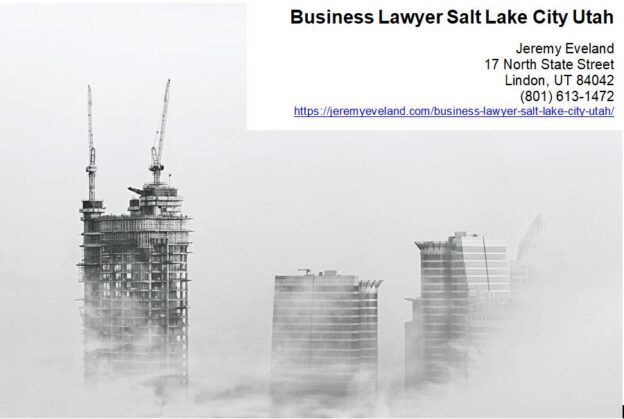Hospital Law
-
Utah Lawyer
- Introduction
- Investigating the Legal Access Rights of Patients in NHS Hospitals
- Exploring the Social Care Act and Its Impact on Social Care
- Legal Responsibilities of Doctors and Hospitals in Utah
- Exploring the Mental Health Act and Its Consequential Amendments
- Understanding the Legal Rights of Patients
- Lawyer Representing Hospitals in Utah
- Q&A
“Navigating the Complexities of Hospital Law – We Make It Easier.”
Introduction
Hospital law is a complex and ever-evolving field of law that governs the operations of hospitals and other healthcare facilities. It covers a wide range of topics, from patient rights and privacy to medical malpractice and healthcare fraud. Hospital law is an important area of law that helps ensure that patients receive the best possible care and that healthcare providers are held accountable for their actions. This introduction will provide an overview of the key aspects of hospital law and how it affects healthcare providers and patients.
Investigating the Legal Access Rights of Patients in NHS Hospitals
Patients in NHS hospitals have a number of legal access rights that are designed to ensure they receive the best possible care. These rights are outlined in the NHS Constitution, which sets out the principles and values of the NHS in England.
The NHS Constitution states that all patients have the right to be treated with respect and dignity, and to be given the information they need to make informed decisions about their care. Patients also have the right to access their medical records, and to be involved in decisions about their care.
Patients also have the right to complain if they feel their care has not been of a satisfactory standard. The NHS Constitution states that all complaints should be dealt with promptly and fairly, and that patients should be kept informed of the progress of their complaint.
Patients also have the right to access NHS services free of charge, and to be given the same level of care regardless of their age, gender, race, religion, or sexual orientation.
In addition, patients have the right to access NHS services in a language they understand, and to be given the support they need to access services if they have a disability.
Finally, patients have the right to be given information about their care in a format that is easy to understand. This includes information about their diagnosis, treatment options, and any risks associated with their care.
These legal access rights are designed to ensure that all patients receive the best possible care from the NHS. It is important that patients are aware of their rights, and that they are able to exercise them if necessary.
Exploring the Social Care Act and Its Impact on Social Care
The Social Care Act of 2012 is a piece of legislation that has had a significant impact on the social care sector in the United Kingdom. The Act was introduced to ensure that social care services are provided in a way that is safe, effective, and of a high quality. It also seeks to ensure that people who use social care services are treated with dignity and respect.
The Social Care Act sets out a number of key principles that must be followed by social care providers. These include the need to promote people’s independence, well-being, and choice; to ensure that people are treated with dignity and respect; and to ensure that services are provided in a safe and effective manner. The Act also sets out the duties of social care providers, including the need to ensure that services are provided in a way that meets the needs of the people who use them.
The Social Care Act has had a number of impacts on the social care sector. Firstly, it has led to an increased focus on the quality of care provided. Social care providers must now ensure that they are providing services that meet the needs of the people who use them, and that they are doing so in a safe and effective manner. This has led to an increased emphasis on training and development for social care staff, as well as an increased focus on monitoring and evaluation of services.
The Social Care Act has also led to an increased focus on the rights of people who use social care services. The Act sets out a number of rights that people who use social care services have, including the right to be treated with dignity and respect, the right to be involved in decisions about their care, and the right to access information about their care. This has led to an increased emphasis on ensuring that people who use social care services are aware of their rights and are able to exercise them.
Finally, the Social Care Act has led to an increased focus on the regulation of social care services. The Act sets out a number of requirements that social care providers must meet in order to be registered and to provide services. This has led to an increased emphasis on ensuring that social care providers are meeting these requirements, and that they are providing services in a safe and effective manner.
In summary, the Social Care Act of 2012 has had a significant impact on the social care sector in the United Kingdom. It has led to an increased focus on the quality of care provided, the rights of people who use social care services, and the regulation of social care services. This has had a positive impact on the sector, and has helped to ensure that people who use social care services are receiving the care they need in a safe and effective manner.
Legal Responsibilities of Doctors and Hospitals in Utah
Doctors and hospitals in Utah are subject to a variety of legal responsibilities. These responsibilities are based on both state and federal laws, and they are designed to protect the health and safety of patients.
First, doctors and hospitals in Utah must comply with the state’s medical malpractice laws. These laws require that medical professionals provide a certain standard of care to their patients. If a doctor or hospital fails to meet this standard, they may be held liable for any resulting injuries or illnesses.
Second, doctors and hospitals in Utah must comply with the state’s privacy laws. These laws protect the privacy of patients’ medical information. Doctors and hospitals must keep patient information confidential and secure, and they must only use it for legitimate medical purposes.
Third, doctors and hospitals in Utah must comply with the state’s licensing laws. These laws require that medical professionals maintain a valid license to practice medicine in the state. Doctors and hospitals must also comply with any other applicable regulations, such as those related to the use of drugs and medical devices.
Finally, doctors and hospitals in Utah must comply with the state’s anti-discrimination laws. These laws prohibit discrimination based on race, gender, religion, and other protected characteristics. Doctors and hospitals must treat all patients equally and provide them with the same level of care.
By following these legal responsibilities, doctors and hospitals in Utah can ensure that they are providing the highest quality of care to their patients.
Exploring the Mental Health Act and Its Consequential Amendments
The Mental Health Act is a piece of legislation that governs the assessment, treatment, and rights of individuals with mental health issues in the United Kingdom. It was first introduced in 1983 and has since been amended several times in order to ensure that individuals with mental health issues are treated fairly and with respect.
The Mental Health Act 1983 was the first piece of legislation to provide a legal framework for the assessment, treatment, and rights of individuals with mental health issues. It established the legal framework for the assessment and treatment of individuals with mental health issues, as well as the rights of those individuals. The Act also established the Mental Health Review Tribunal, which is responsible for reviewing the detention of individuals with mental health issues and ensuring that their rights are respected.
Since its introduction, the Mental Health Act has been amended several times in order to ensure that individuals with mental health issues are treated fairly and with respect. The most significant amendment was the Mental Health Act 2007, which introduced a number of changes to the Act. These changes included the introduction of the Mental Health Capacity Act, which established the right of individuals to make decisions about their own treatment, as well as the introduction of the Mental Health Tribunal, which is responsible for reviewing the detention of individuals with mental health issues.
The Mental Health Act 2007 also introduced a number of other changes, such as the introduction of the Mental Health Care and Treatment Plan, which is designed to ensure that individuals with mental health issues receive the best possible care and treatment. Additionally, the Act introduced the Mental Health Crisis Care Concordat, which is designed to ensure that individuals in crisis receive the best possible care and support.
The Mental Health Act 2007 also introduced a number of other changes, such as the introduction of the Mental Health (Discrimination) Act, which prohibits discrimination against individuals with mental health issues. Additionally, the Act introduced the Mental Health (Approved Mental Health Professionals) Regulations, which established the qualifications and training requirements for approved mental health professionals.
The Mental Health Act 2007 has been amended several times since its introduction in order to ensure that individuals with mental health issues are treated fairly and with respect. The most recent amendment was the Mental Health Act 2017, which introduced a number of changes to the Act, including the introduction of the Mental Health (Approved Mental Health Professionals) Regulations, which established the qualifications and training requirements for approved mental health professionals. Additionally, the Act introduced the Mental Health (Discrimination) Act, which prohibits discrimination against individuals with mental health issues.
The Mental Health Act and its consequential amendments have been instrumental in ensuring that individuals with mental health issues are treated fairly and with respect. The Act has established a legal framework for the assessment and treatment of individuals with mental health issues, as well as the rights of those individuals. Additionally, the Act has introduced a number of changes to ensure that individuals in crisis receive the best possible care and support.
Understanding the Legal Rights of Patients
Patients have certain legal rights that must be respected by healthcare providers. It is important for patients to understand these rights so that they can make informed decisions about their care.
Patients have the right to be informed about their diagnosis, treatment options, and prognosis. Healthcare providers must provide patients with accurate and up-to-date information about their condition and the available treatments. Patients should also be informed of any risks associated with the proposed treatment.
Patients have the right to make decisions about their care. Healthcare providers must respect the patient’s right to make decisions about their care, including the right to refuse treatment. Patients should be informed of the consequences of refusing treatment and should be given the opportunity to make an informed decision.
Patients have the right to privacy and confidentiality. Healthcare providers must protect the patient’s privacy and keep their medical information confidential. This includes not disclosing the patient’s medical information to anyone without the patient’s consent.
Patients have the right to access their medical records. Healthcare providers must provide patients with access to their medical records upon request. Patients should also be informed of any changes made to their medical records.
Patients have the right to be treated with respect and dignity. Healthcare providers must treat patients with respect and dignity, regardless of their race, gender, religion, or sexual orientation.
Patients have the right to file a complaint if they feel their rights have been violated. Healthcare providers must provide patients with information about how to file a complaint if they feel their rights have been violated.
It is important for patients to understand their legal rights so that they can make informed decisions about their care. Healthcare providers must respect the patient’s rights and ensure that they are treated with respect and dignity.
Lawyer Representing Hospitals in Utah
Utah hospitals are dedicated to providing quality care to their patients. As such, they require the assistance of experienced legal counsel to ensure that their operations are compliant with all applicable laws and regulations.
At the Law Offices of Smith & Associates, we are proud to represent hospitals in Utah. Our attorneys have extensive experience in the healthcare industry, and we understand the unique challenges that hospitals face. We provide comprehensive legal services to hospitals, including advice on regulatory compliance, contract negotiation, and dispute resolution.
We understand the importance of providing quality care to patients, and we strive to ensure that our clients are able to do so in a manner that is compliant with all applicable laws and regulations. Our attorneys are knowledgeable in the areas of healthcare law, including HIPAA, Medicare, Medicaid, and other relevant regulations. We are also experienced in the areas of medical malpractice, employment law, and insurance coverage.
At the Law Offices of Smith & Associates, we are committed to providing our clients with the highest quality legal services. We are dedicated to helping our clients navigate the complexities of the healthcare industry and ensure that their operations are compliant with all applicable laws and regulations. If you are a hospital in Utah and are in need of legal counsel, please contact us today to discuss your legal needs.
Q&A
1. What is hospital law?
Hospital law is a branch of law that deals with the legal issues that arise in the context of hospitals and other healthcare facilities. It covers a wide range of topics, including patient rights, medical malpractice, privacy, and the regulation of healthcare providers.
2. What are the legal rights of patients in a hospital?
Patients in a hospital have the right to receive appropriate medical care, to be informed of their diagnosis and treatment options, to be treated with respect and dignity, to have their privacy respected, and to be free from discrimination.
3. What is medical malpractice?
Medical malpractice is a form of negligence that occurs when a healthcare provider fails to provide a patient with the standard of care that is expected in the medical profession. This can include errors in diagnosis, treatment, or aftercare.
4. What is the difference between a hospital and a healthcare facility?
A hospital is a facility that provides inpatient care, while a healthcare facility is a facility that provides outpatient care. Hospitals typically provide more comprehensive care than healthcare facilities, but both are subject to the same legal regulations.
5. What is the role of the government in regulating hospitals?
The government plays an important role in regulating hospitals and other healthcare facilities. It sets standards for the quality of care that must be provided, and it enforces those standards through inspections and other means.
6. What is the role of the courts in hospital law?
The courts play an important role in hospital law by adjudicating disputes between patients and healthcare providers. They also interpret laws and regulations related to hospitals and healthcare facilities, and they can issue orders to ensure that hospitals comply with the law.
Hospital Law Consultation
When you need legal help with Hospital Law call Jeremy D. Eveland, MBA, JD (801) 613-1472 for a consultation.
Jeremy Eveland
17 North State Street
Lindon UT 84042
(801) 613-1472
Related Posts
Real Estate Attorneys in Salt Lake City Utah
Business Contract Lawyer Riverton UT
Business Law and Intellectual Property
Commercial Litigation Strategies
Estate Planning Lawyer Salt Lake City Utah















